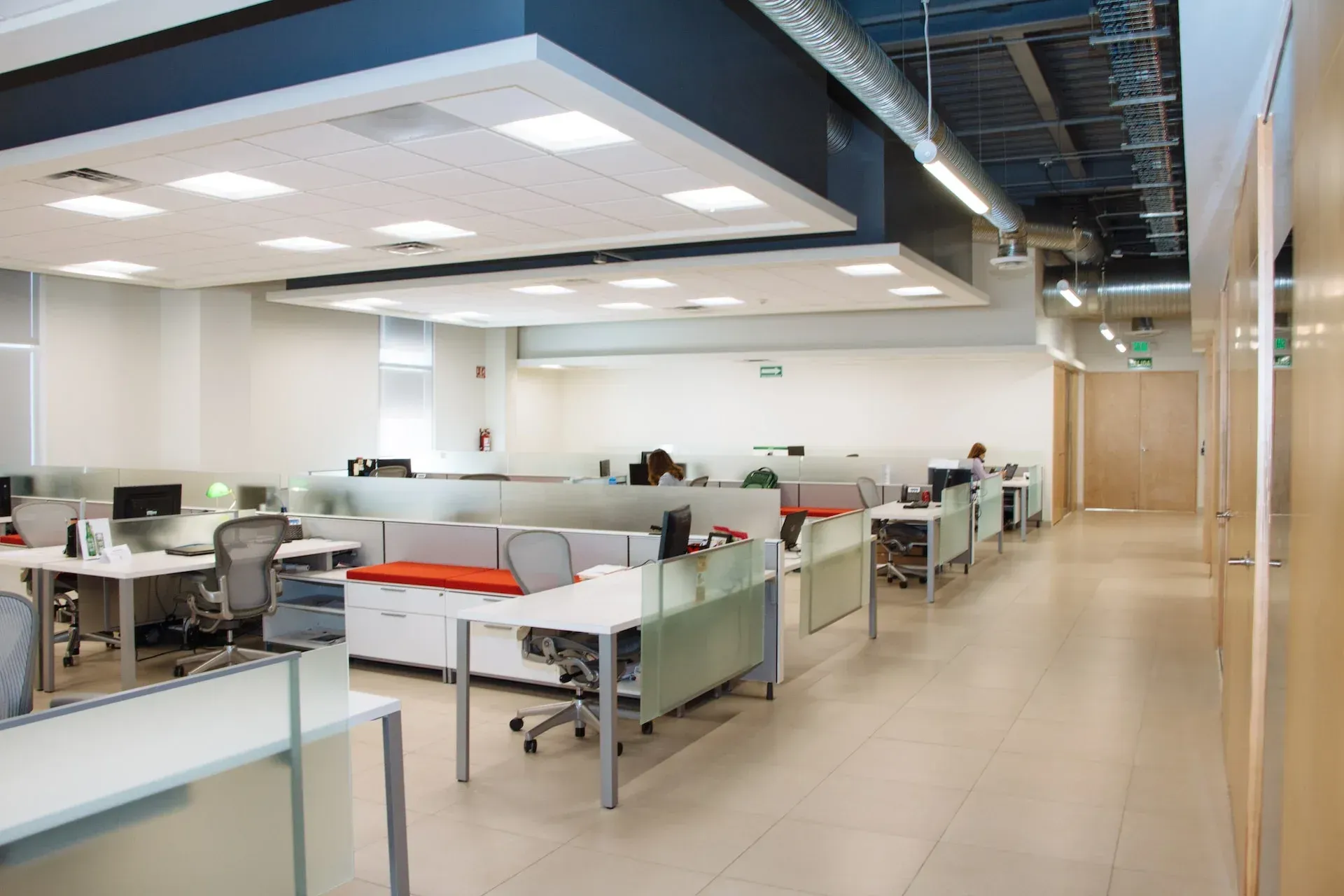Navigating Commercial Construction: Key Considerations for Business Owners
When it comes to home remodeling projects, proper planning is key to ensure a successful outcome. As a homeowner, it's important to understand the essential steps involved in the construction process. By following a systematic approach, you can effectively manage your project, communicate your vision to the construction team, and achieve the desired results. In this comprehensive guide, we will walk you through six crucial steps to help you plan and execute a successful home renovation.
Understanding Commercial Construction
Commercial construction encompasses a wide range of projects, including building new structures and remodeling existing ones. These projects involve various types of commercial buildings, such as retail centers, offices, industrial warehouses, and medical facilities. The scale of commercial construction can vary from small updates and repairs to large-scale ground-up projects. It's crucial to understand the different levels of construction to determine the scope and complexity of your project.
Levels of Commercial Construction
There are three main levels of commercial construction:
- Large Scale: Large-scale projects involve starting from the ground up and require the expertise of a commercial developer or architect. These projects require extensive planning, preparation, and time to ensure success.
- Medium Scale: Medium-scale projects typically involve expansions, remodels, or building restructuring. These projects are suitable for giving existing buildings a fresh look and require careful planning and coordination.
- Small Scale: Small-scale projects include structure updates, office redesigns, and building repairs. These projects offer a cost-effective way to improve existing buildings without significant construction costs.
The Commercial Construction Process
The commercial construction process can be divided into several key stages: development, design, construction, and the finished product. Each stage requires careful planning, coordination, and communication to ensure a successful outcome.
Planning and Development
The planning and development stage is critical for laying the foundation of your commercial construction project. This stage involves finding the right location, analyzing the budget, and creating a project schedule. Working with a general contractor and an architect can help ensure that all aspects of the project are considered and aligned with your vision.
During the budgeting process, it's important to account for building packages, foundation costs, and potential unforeseen expenses. Planning for unexpected outcomes, such as labor shortages or expensive materials, can help mitigate risks and ensure that your project stays within budget.
Building Pre-Design and Design
The pre-design and design phase is where the building's design and specifications are developed. This stage involves collaborating with architects to understand your project goals and create design concepts. The design team will also develop schematics that outline the sizes, materials, and colors of the building.
Environmental specialists and feasibility consultants may be involved in validating your building design to ensure compliance with regulations. The final design phase includes detailed drawings and specifications that contractors will use for construction. These documents outline the materials, installation methods, and timelines for each construction phase.
Pre-Construction and Construction Process
The pre-construction phase involves finalizing project details, acquiring necessary permits, and preparing the construction site. During this stage, subcontractors and vendors provide estimates, and a project manager oversees the acquisition of materials and labor. Important steps in this phase include obtaining building permits, securing insurance coverage, and assembling a construction team.
Once pre-construction is complete, the construction process begins. This phase includes excavation, concrete pouring, steel erection, framing, roofing, and interior/exterior work. Project managers and construction inspectors ensure quality control throughout the construction process. Any necessary adjustments or minor tweaks are identified and addressed before the building is occupied.
Procurement Process
The procurement process involves purchasing equipment, materials, and labor needed for construction. The project manager is responsible for sourcing these resources and ensuring they meet project requirements. Setting up meetings with contractors and suppliers helps establish expectations, quality control measures, and project timelines.
Contractors start with excavation and installing underground utilities. The construction manager oversees the process, including pouring concrete, erecting steel structures, and completing interior and exterior work. Quality control and inspections are essential during this phase to ensure compliance with building regulations.
Finished Product
Once construction is complete, the architect issues a certificate of completion, and the building undergoes a final inspection. A financial inspection may also be required before the building can be opened to the public. At this stage, the project owner receives all necessary documentation related to the building's operation.
Commercial Construction Tips
Navigating a commercial construction project can be overwhelming, but with the right approach and considerations, you can achieve success. Here are some essential tips to keep in mind:
Plan Ahead
Effective planning is crucial for the success of your commercial construction project. Defining the project scope, creating a project timeline, and scheduling tasks are all important aspects of planning. A well-developed construction project plan acts as a roadmap to guide the project from start to finish.
There are different types of construction planning to consider, including operational planning and strategic planning. Operational planning involves creating detailed plans to meet project goals, while strategic planning focuses on ensuring overall satisfaction for the project owner and end-users.
Have a Budget in Mind
Having a realistic budget is essential for managing costs throughout the construction process. Cost estimation and budgeting play a critical role in commercial construction projects. It's important to prepare an initial budget that accounts for design and construction costs, as well as potential project expenses.
Understanding key aspects of the project, such as elevations, floor plans, and site plans, can aid in cost planning. Allocating contingency funds to account for unforeseen conditions and hidden costs is also crucial. Cost management involves analyzing project requirements, determining costs and time parameters, and implementing ongoing controls to track cost impacts.
Work With the Right People
Selecting the right team of professionals is vital for the success of your commercial construction project. Collaborating with experts who specialize in commercial construction, such as architects, construction managers, and contractors, ensures that your project meets high standards and stays on track.
When choosing an architect, consider their experience, licenses, and ability to understand your specific needs. Look for an architect who has worked on similar projects and has a good understanding of local building codes. Finding a construction manager who is experienced, knowledgeable about local regulations, and utilizes technology for project management is also important.
Be Realistic With Your Involvement
As a project owner, it's important to be realistic about your level of involvement in the construction process. Determine how much time you can devote to the project and consider hiring a project manager to oversee the process. Delegating tasks and responsibilities to the appropriate professionals allows you to focus on other aspects of your business.
Get All the Documentation Ready
Ensure that you have all the necessary documentation in place before starting your commercial construction project. This includes obtaining the required permits and complying with local regulations. Failure to do so may result in legal issues and complications. Working with professionals who understand the permitting process can help streamline this aspect of the project.
Understand Contractor Delivery Methods
Different commercial contractors offer various delivery methods for completing a construction project. Understanding these methods and their implications can help you make informed decisions. Delivery methods may include design-build, renovations, remodeling, or hard bidding. Consider the level of responsibility and risk associated with each method and select the one that aligns with your project goals.
Have a Realistic Completion Date
While it's natural to want your project completed as quickly as possible, it's important to set realistic expectations for the completion date. Commercial construction projects involve various factors, such as inspections, regulations, and weather conditions, that can affect the timeline. Consult with your general contractor to establish a realistic delivery date based on the project's scope and requirements.
Communication is Key
Effective communication is crucial for the success of any commercial construction project. Regular and open communication among all project stakeholders, including the owner, architect, contractor, and subcontractors, ensures that everyone is aligned and informed. Establishing clear lines of communication and a single point of contact can help streamline the process and prevent misunderstandings.
Don't Forget to Have a Contingency Plan
It's important to have a contingency plan in place to account for unforeseen circumstances and potential changes during the construction process. Allocating a portion of your budget as a contingency fund helps mitigate risks and ensures that you can address any unexpected issues that may arise.
Don't Make Last-Minute Changes
Avoid making last-minute changes to your construction plans once the project is underway. Changes can lead to budget overruns and delays. It's crucial to work closely with your architect and construction manager to discuss any necessary modifications and ensure that they align with your budget and project goals.
Understand How to Resolve Conflicts
Conflicts may arise during the construction process, and it's important to know how to address and resolve them. Have a clear contract in place that outlines the responsibilities of each party involved. This helps ensure accountability and provides a framework for resolving any disputes that may arise.
Conclusion
Navigating a commercial construction project requires careful planning, collaboration, and communication. By considering crucial factors such as budgeting, timeline management, and compliance with regulations, business owners can successfully complete their construction projects. Working with experienced professionals, such as general contractors, architects, and construction managers, ensures that your project meets high standards and achieves the desired outcome. With the right approach and considerations, you can embark on a commercial construction journey and create a space that meets your business needs and goals.
Sources:
You might also like
Construction Insights and Inspiration


Book a Service Today
We will get back to you as soon as possible
Please try again later
All Rights Reserved | Solstice Building Group, Inc



